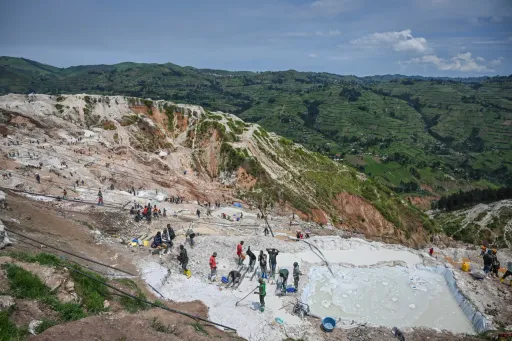Earlier this month, the world lost a great scientist, who sparked curiosity and deeper research.
The Tanzanian scientist, Erasto Mpemba is credited with a discovery that hot liquid -usually water - freezes faster than the same quantity of liquid that is initially cold.
Mpemba’s finding after observation in 1963 has defied intuition and led to decades of research and debate making it one of the most intriguing scientific mysteries. His finding and procedure are now known as the Mpemba Effect.
“In the science world, Mpemba is a huge contribution,’’ says Vincent Rwehumbiza, a biochemical engineer based in Tanzania.
How it all started
In 1963 Erasto Mpemba then a 13-year-old Tanzanian Secondary school student was preparing ice cream for sale as his way of making some extra money.
Like most great moments in the history of science, Mpemba did not follow the usual procedure, which generally required him to wait for the hot milk to cool before placing the ice cream in the freezer to solidify.
Instead, he decided to do the opposite placing his hot ice cream into the freezer and to his shock it froze much quicker than those of his classmates who waited for the ice cream to cool before putting in the freezer.
Mpemba then informed his teacher of the marvelous discovery but the teacher dismissed it. However, the little student did not relent.
Through his later years in school, Mpemba kept experimenting the phenomenon, and he always got the same result: hot water froze quicker than cold water.
Further experimentation in a school lab also yielded consistent results, reinforcing Mpemba's conviction that the phenomenon was noteworthy.
But again, his questions to his teachers were said to have been dismissed as either him being confused, possessed by spirits or down to some errors.
He later enrolled in Mkwawa Secondary School in Iringa, Tanzania. It is here that he met Denis Gordon Osborne, a visiting physics professor from the University of Dar es Salam.
Mpemba posed the question to Professor Osborne who acknowledged the merit of the inquiry and promised to investigate further.
This led to a collaboration between Mpemba and Osborne, resulting in their publication titled "Cool?" in the journal 'Physics Education’ in 1969. The effect soon became known as the Mpemba Effect.
‘Fascinating phenomenon’
Mpemba and Dr Osborne's publication sparked increased interest in the Mpemba Effect.
Over the years, numerous scientists have attempted to provide explanations, but a consensus has yet to be reached.
“Osborne and Mpemba’s paper, COOL, did conclude with the disclaimer that it was open to further research”, biochemical engineer Dr Vincent Rwehumbiza, told TRT Afrika.
“If you want to teach someone an effective scientific method, the Mpemba Effect is the perfect example because it encourages scientific curiosity,” Rehumbiza says.
According to Dr Rwehumbiza, counterintuitive methods like this allow an individual to think more and dig deeper making it a “fascinating phenomenon.”
Mpemba’s procedure has captured the attention of both scientists and the general public alike over the years with science enthusiasts conducting more intriguing experiments to explore the phenomenon adding to its mystique.
In 2012, the Royal Society of Chemistry organised a competition that attracted over 22,000 submissions to unravel the mystery.
Although no definitive conclusion emerged, the event once again highlighted the continued interest in the subject and Mpemba’s work.
Under-recognised ‘role model’
What is interesting is that while Mpemba had made contribution to science he made a career in other fields as well.
‘’He went on to become a Chief Wildlife Officer, but we still remember and know about him, although only a specific niche,” Rwehumbiza says.
But he believes more work, support and encouragement are needed to put African scientists like late Mpemba in the limelight because of his preciousness.
He was “a role model” to some of those in the sciences who are used to hearing Western names like Einstein and Newton.
More Africans like Mpmeba deserves no less than others who contributed to science, says Rwehumbiza. “Why not name a road after him to show that appreciation in Africa?” the chemical expert queries.
“Mpemba effect does not have its dedicated space in our primary and secondary schools' science books? I had to find out about my grandfather in secondary school, and even then, the teachers did not make it out to sound as big as it could have been,” says Wilman Haonga, Mpemba’s grandson.
There is the need for “elevating more Africans who can be taught about it in schools,” Haonga told TRT Afrika.
Mpemba was seen as almost a footnote in his own story and at the beginning he had to endure a lot of ridicule in his schooling because of his curiosity and scientific observation.
But the fact that the scientists are still invested in researching the Mpemba Effect means there's some importance on his finding in scientific world as well as hopes for the future even though Mpemba is no more.
Mpemba believed in determination. In a speech at the National Museum in Tanzania in 2012, he reminded us, “be persistent, and you will persevere!”
Be persistent, and you will persevere!























